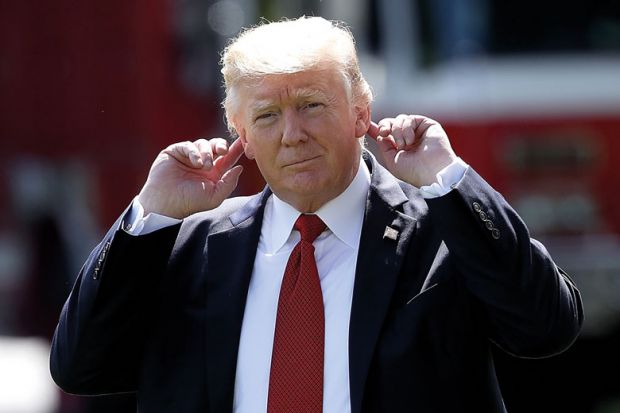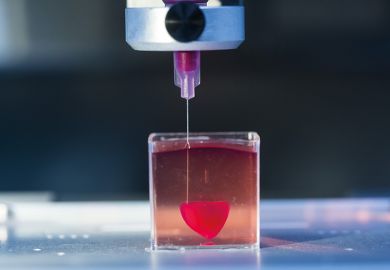One of the few academics on Donald Trump’s science advisory panel said she had agreed to serve out of a sense of duty and expressed hope that her advice would be heeded.
The President’s Council of Advisors on Science and Technology (PCAST) was created in 1990 by the Republican administration of George H. W. Bush to provide the White House with expert scientific input.
The Trump administration last month appointed its first seven members, with all but one coming from outside academia. It added two more, both with university backgrounds, just ahead of the revived council’s opening meeting on 18 October.
The new additions begin to fulfil the administration’s pledge to eventually create a 16-member council with several additional academic representatives.
The administration’s chief science adviser, Kelvin Droegemeier – a former professor of meteorology at the University of Oklahoma who was named to his White House post only in August 2018 – attributed some of the PCAST appointment delays to necessary security clearances.
PCAST was heavily active in the Obama administration, issuing nearly 40 reports on topics that included integrated energy policy, science education and combating antibiotic-resistant bacteria. Some led to policy changes, including non-prescription sales of hearing aids and radio frequency spectrum reallocations.
The only university-affiliated scientist in the Trump administration’s first round of PCAST appointments, Birgitta Whaley, professor of chemistry at the University of California, Berkeley, admitted to some anxiety while waiting to see other academics join her.
The six other individuals who joined Professor Whaley in the initial announcement all have corporate backgrounds, coming from companies that include IBM, HP, Bank of America and S. C. Johnson & Son.
Professor Whaley, a quantum computing expert, said she had agreed to serve out of a sense of duty. “I think as a scientist, if you are asked to give input, you should,” she said.
The administration’s focus on quantum computing as a national priority is encouraging and should not involve the political disagreements that surround other scientific topics these days, Professor Whaley said.
And to the degree that PCAST does take her into other scientific fields and controversies, Professor Whaley, who was born in the UK, said she would do her best to offer advice diplomatically.
“It’s going to be very important that it’s given in the right way,” she said. “One hopes for the best.”
Already, Professor Whaley said, she saw potential challenges. Just days ahead of PCAST’s convening, the Trump administration was reported to be planning new rules – advocated by congressional Republicans – that would let the US Environmental Protection Agency ignore research findings affecting human health if the scientists do not make all related data publicly available.
Scientists have tried to explain that such a rule is unworkable in many settings because reliable human studies must involve giving subjects some measure of privacy assurances. While Republicans have portrayed their rule as aimed at building confidence in scientific data, health experts have derided it as a transparent effort to ease the burden on companies that pollute.
The two more recent academic additions to PCAST are Dorota Grejner-Brzezinska, professor of civil, environmental and geodetic engineering at Ohio State University, and Shannon Blunt, a professor of electrical engineering and computer science at the University of Kansas.
Professor Whaley avoided a direct answer on the question of whether she expected it would prove worthwhile to offer scientific advice to an administration with a history of cutting governmental advisory panels.
“There’s no harm in trying,” the professor said.





